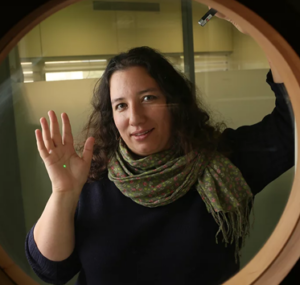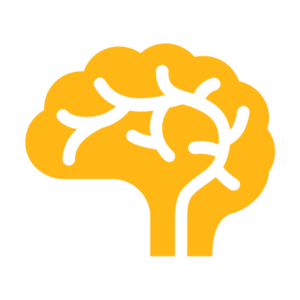SWAMMERDAM LECTURE – Friday December 2nd 2022
Prof. dr. Inbal Goshen
Astrocytes in High Brain Function

| Affiliation | Goshen Lab, Edmond and Lily Safra Center for Brain Sciences (ELSC), The Hebrew University, Jerusalem, Israel |
| Date / time | Friday December 2nd 2022 13:30-15:30 Masterclass 16:00-17:00 Swammerdam Lecture |
| Host | Dr. Michel van den Oever & Dr. Mark Verheijen |
| Location | Center for Neurogenomics and Cognitive Research Vrije Universiteit Amsterdam The lecture is followed by a reception and will be preceded by a master class for selected ONWAR PhD candidates. More information on the masterclass will follow. |
In addition to their well characterized supportive and homeostatic roles, pioneering studies have shown that astrocytes directly affect neuronal activity. In recent years, ground-breaking research revealed many surprising roles for astrocytes in modulating neuronal activity and even behavior. To directly and specifically modulate astrocytic activity we employed a chemogenetic approach: We expressed the Gq-coupled designer receptor hM3Dq or the Gi-coupled designer receptor hM4Di in astrocytes, which allowed their time-restricted activation or inhibition (respectively) by the application of the designer drug clozapine-N-oxide (CNO).
We discovered that in-vivo, astrocytic activation enhanced memory allocation, i.e. it increased neuronal activity in a task-specific way, only when coupled with learning but not in home-caged mice. Furthermore, astrocytic activation using either chemogenetic or optogenetic tools during acquisition resulted in memory recall enhancement on the following day. On the other hand, astrocytic Gi pathway activation during memory acquisition impairs remote, but not recent, recall. We show that this effect is mediated by a specific disrupting of the projection from the hippocampus to the anterior cingulate cortex by astrocytes.
What other high brain functions can astrocytes affect? We chronically imaged dozens of CA1 astrocytes using 2-photon microscopy, in mice that ran on a linear treadmill and proceed in a virtual environment to obtain water rewards. We find that astrocytic activity persistently ramps towards the reward location in a familiar environment. When the reward location was changed in the same environment or when mice were introduced to a novel context, the ramping was not apparent. Following additional training, as the mice were familiarized with the new reward location or novel context, the ramping was re-established, suggesting that spatial modulation of astrocytic activity is experience dependent. This is the first indication that astrocytes can encode position related information in learnt spatial contexts, thus broadening their known computational abilities, and their role in cognitive functions. We are continuing to look for higher brain function (now – memory engrams!) in which astrocytes are involved.
Inbal Goshen is principal investigator at the Edmond and Lily Safra Center for Brain Sciences (ELSC) at The Hebrew University in Jerusalem, Israel. Her lab studies the transition from recent to remote memory and how local modulation of neuronal activity by glia cells directly affects plasticity and behavior. They employ a variety of research approaches, integrating behavior, calcium imaging, electrophysiology and molecular biology, and apply optogenetics or chemogenetics in all of these levels

Masterclass (13:30-15:30)
The aim of this Masterclass is to have a highly interactive and stimulating meeting. The Masterclass will take place from 13:30 to 15:30 at the VU.
Format:
- ± 6 PhD students will be selected to give a 5-8 min presentation to introduce their research dilemma/discussion point(s) that they would like to discuss with prof. Inbal Goshen. The presentation should be short to keep ample time for feedback and discussion. It is advised to formulate the questions/discussion points in the last slide.
- The total MSc class takes ±2h
- PhD supervisors do not attend.

